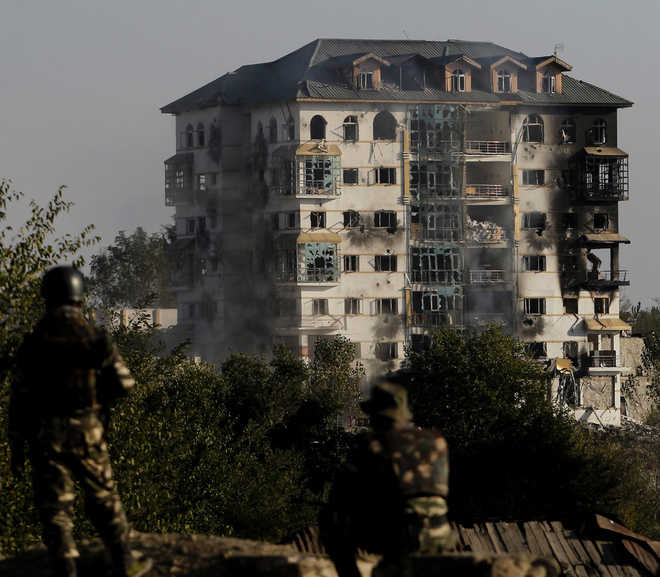Samaan Lateef
Tribune News Service
Srinagar, October 14
Shaheen Akhter, 33, has become a household name in Kashmir for her home-grown pashmina shawls. Daughter of a coppersmith and the only graduate degree holder among her six siblings, abject poverty had given her the worst patch of her life.
In 2004, after completing her degree, financial constraints of the family did not encourage her to continue her studies. Once out of college, she started weaving pashmina shawls. However, the transition was not easy from growing into a coppersmith’s family to Kashmiri handicrafts.
In 2006, trainers of the J&K Entrepreneurial Development Institute (EDI), which had been hit by two major gunfights between militants and security forces in nearly eight months, destroying two multi-storey buildings, provided her the best guidance to expand her business at the international level.
“The 10-day training by EDI trainers in 2006 changed my life,” said Akhter, whose annual turnover stood at nearly Rs 1 crore. Not only that, she had employed 20 workers from different parts of the Valley and had 11 weaving looms at her unit.
She had travelled to many cities of the country to tap new markets and designs. “My shawls have created a rage in Rome and managed to find space in showrooms of several European countries,” Akhter said.
Like her, Javaid Ahmad Malik of Thajivara village in south Kashmir’s Bijbehara sub-district had made a name among young entrepreneurs of Kashmir with the help of the EDI.
Malik, 33, was a Class V student in 1994 when he lost his father in firing. Following his father’s demise, life became very tough for the family. After completing his college in 2005, Malik was sure that he would not continue his studies and instead support his poverty ridden family.
He tried his hand at a couple of odd jobs in 2007 and worked as contractor with the Flood Control Department. But, he wanted to do something different.
In 2010, Malik came to know about the training and financial assistance provided by the EDI to young unemployed youth.
He gave a project report to start his detergent manufacturing unit to the EDI. It was approved and he started training in February 2011.
Amid cut-throat competition with established detergent brands, Malik could create a niche in the market with financial support and guidance by EDI trainers.
Like Malik, 27,182 youths of Jammu and Kashmir had got training for starting their businesses in different sectors, particularly agriculture and services.
Established in March 1997 to effectively enable entrepreneurship development in the state, the institute started regular activities in February 2004 and positioned itself as a learning centre par excellence with state-of-the-art regional centres across the state.
There were EDI community organisers in all 22 districts, enabling entrepreneurship and promoting development at the grassroots.
However, the two gunfights had brought huge losses on the EDI and played with the career of nearly 6,000 youths being imparted training every year. “Of these 6,000 youths, we had to provide financial linkage to nearly 4,000 under different schemes,” said Mir Ashfaq, press and publicity officer, EDI.
Unlock Exclusive Insights with The Tribune Premium
Take your experience further with Premium access.
Thought-provoking Opinions, Expert Analysis, In-depth Insights and other Member Only Benefits
Already a Member? Sign In Now










